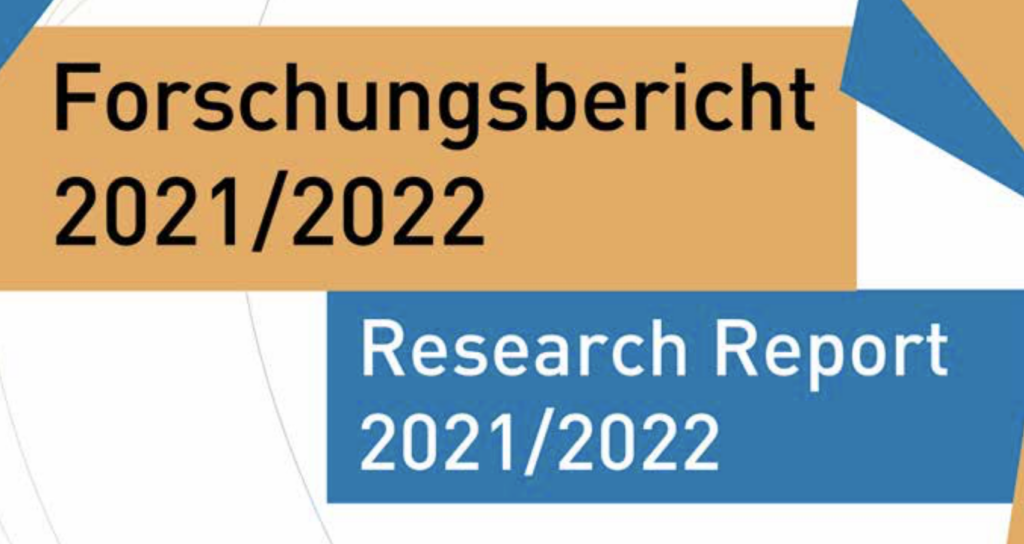
ZeMKI Research Report 2021/2022
Time flies, now that a year is behind us in which we have moved from researching more less in an “online world” back into “co-presence”. Not only were there, again, many appearances at conferences, on-site research and a summer party, but the ZeMKI Research Seminar and Fellow Programme have also picked up speed locally. We were able to welcome Visiting Research Fellows from Brazil (Fernando Cavalcante), the UK (Phoebe Moore), Israel (Hillel Nossek), Canada (Michelle Stack), the Netherlands (Nicolas Baer), Sweden (Anamaria Dutceac Segesten), South Korea (Chankyung Pak) and the United States (Gregory Grieve). The activities were diverse. For example, an international summer school on “Video gaming in socio-cultural settings” was organised with Gregory Grieve and the ZeMKI Lab “Religion and Media”, and a meeting of the International Academy for the Study of Gaming and Religion as well, to which we welcomed guests from Canada, Austria, the Czech Republic and the USA.
Much has happened in the ZeMKI Labs, in its doctoral program and in various research, qualification and teaching projects. More information about this can be found in this research report. There have also been organisational changes at the ZeMKI: After Stephanie Geise took up the professorship of Communication and Media Studies with a focus on methodological innovation, she established the new Lab “Political Communication and Innovative Methods”. This enabled the ZeMKI to gain entirely new research foci, for example in the area of visual communication, and the entire area of “digital methods in context” was further expanded. This is not least due to the fact that Stephanie Geise, together with Christian Katzenbach and Cornelius Puschmann, has firmly anchored the DFG network “Potentials and Challenges of Computational Communication Science using the Example of Online Protest” at the ZeMKI. But there is also a lot going on at the moment in terms of method development, and you will find various references to this on the following pages. Among the lab directors, Sigrid Kannengießer, who has worked at the ZeMKI for more than 10 years, left us this year for the University of Münster and we wish her every success in her new position. However, she will remain connected to us through various cooperation projects. Finally, attentive readers will notice that the names of some of the labs have changed. The background to this is that we wanted to reflect the changed research profilesinourstructure.
In addition to the work in the individual labs, research in the two overarching thematic areas of the ZeMKI continues with great vigour. The first thematic area is dedicated to questions of “automation and datafication” of communication. Various projects and publications from this topic area are presented in this research report. Beyond these activities, we can already point out that members of this thematic area will organise the 2023 annual conference of the German Society for Journalism and Communication Studies (DGPuK), on the topic of “Automation of Communication and Automated Media”. We are already looking forward to welcoming many colleagues in Bremen from 18-20 May 2023. In addition, the second topic area on audio- visual cultures is currently being further developed, which is dedicated to audiovisual cultures based on the analysis of media productions and the analysis of the actors involved. A doctoral position has been filled for this, which is supervised by two labs in an interdisciplinary way. In addition, in the context of an interdisciplinary workshop, we discussed questions of how audio-visual video game productions create experiences of the past.
Especially the research in the two overarching thematic areas makes it clear what dynamism exists at the ZeMKI – which we are very pleased about. Further information on what is happening in our research, but also in our research-based teaching and learning, is documented on the following pages of this report.
We hope you enjoy reading it!
The ZeMKI Research Report 2021/2022 is available here.


